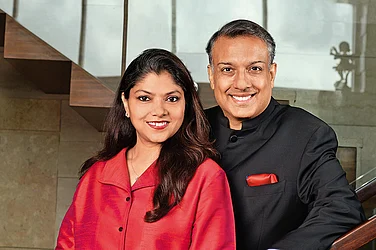A key player in promoting the One Health approach in India is the Ministry of Fisheries, Animal Husbandry and Dairying. Union minister Parshottam Rupala says that his ministry is already ahead of the curve, having launched the vaccination for animals before the Covid-19 vaccination began in India, in an interview with Rajiv Tikoo of Outlook Business. Edited excerpts:
What has the government done so far on One Health?
As part of the One Health initiative, we are looking to reduce the incidence of diseases that can be prevented and are organising vaccination drives in critical areas. The National Animal Disease Control Programme for foot and mouth disease, brucellosis and other critical national diseases has been launched. Apart from the nation-wide vaccination, emphasis on zoonotic diseases is given in developing joint efforts under the National Cooperative Development Corporation, Ministry of Health and Family Welfare. The One Health Support Unit at the Department of Animal Husbandry and Dairying has been created for disease prevention, surveillance and response.
How serious is the threat from zoonotic diseases, like Covid-19, and how can One Health help tackle it?
On an average, a new disease has emerged or re-emerged each year since World War II. Seventy-five per cent of these have an animal source. Also, 335 pathogens emerged between 1940 and 2004, with 60% being of zoonotic origin and 70% from wildlife.
The health issues today are more complex, trans-boundary, multi-factorial and prevalent across species. Zoonotic disease threats shared between animals and human entail trans-disciplinary and multi-sectoral cooperation, collaboration and coordination amongst various stakeholders. The concept of One Health dictates sharing of resources and capacities of each other and supporting the strategic response mechanism jointly or synergistically for early mitigation of the problem in a sustainable manner.
We want to strengthen One Health coordination mechanisms with inter-departmental executive authority for better control measures of zoonotic diseases. Improved access to quality animal healthcare and better disease control and management will minimize the economic loss.
Going forward, how do you intend to promote One Health?
The Department of Animal Husbandry and Dairying has been proactively strengthening animal health and production programmes, which got a major boost with the approval of the special livestock sector package with an outlay of Rs 9,800 crore over the next five years. Keeping in view the economic onslaught caused by non-zoonotic diseases and endemic, emerging or re-emerging zoonotic diseases, we envisage overall strengthening of the animal husbandry infrastructure, so that the country is capable of handling not only the emergency public health threats but also the non-zoonotic diseases. These diseases jeopardise the animal food systems, which also impacts human health and economies.
Do you envisage engagement with the private sector?
We always believe in collaborative, collective and cooperative approach with all stakeholders, including the private sector. We never left out the private sector. We consider private companies and their associations as important stakeholders and have convened more than three rounds of consultations on important points of One Health, industry’s role in antimicrobial resistance and National Action Plan Development on Antimicrobial Resistance. We are looking forwards to more active involvement in solving problems by public-private partnerships in the animal husbandry domain.































